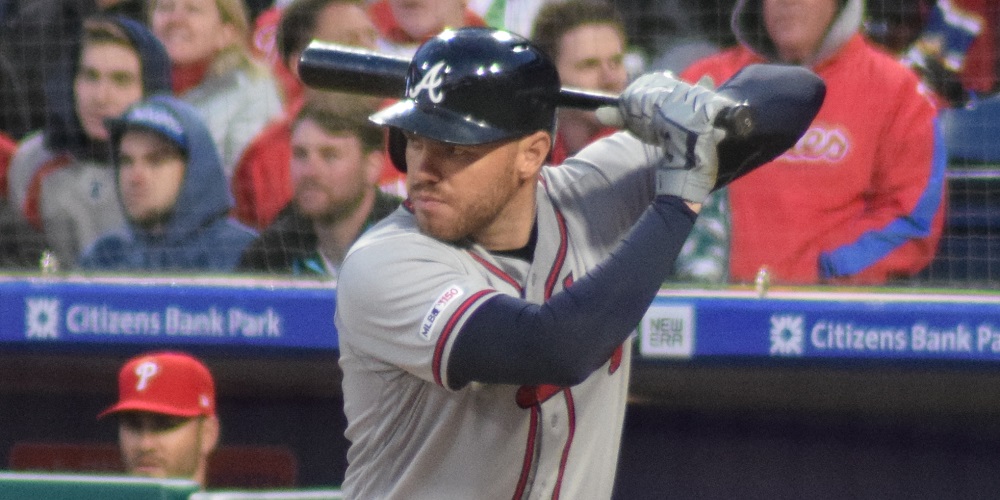
Monday was a bad day. Daniel wrote as much. With the current Collective Bargaining Agreement set to expire at 8:59 p.m. Pacific time, owners are expected to call for a lockout, which would put a stop to all player movement (among other things). As such, we’ve seen a flurry of (mostly) free agent moves in the last few days. It’s something unprecedented and might be a new structure baseball needs to adopt going forward. However, that’s not what this is about.
This is about the Dodgers and their reported interest in Atlanta first baseman Freddie Freeman. Before we go into this, yes, the interest is legitimate, so this isn’t your typical rosterbatory post.
After losing Corey Seager to the Rangers (and Max Scherzer to the Mets) and the revelation that Max Muncy has a torn UCL — which he said doesn’t need surgery at present — the Dodgers are suddenly in the market for a big bat, preferably from the left side. That’s where Freeman, 32, comes into play.
The 2020 NL MVP is one of the best hitters in baseball. You don’t need me to go into all the gritty details to know that (.300/.393/.503, 135 wRC+ in 2021). Despite his rough start to the 2021 NLCS, he flipped the switch and helped lead Atlanta to its first World Series title since 1995. As such, you’d think it’d do basically whatever it takes to keep the heart and soul of its club, right? Not exactly.
The two sides have been talking about a contract extension for quite some time. However, nothing has come of it. He wants six years and it seems Atlanta only wants to go five. If that’s the hang up, then that’s going to be a bad look for Alex Anthopoulos and friends if Freeman ends up leaving.
On the Dodgers’ side, a 6-year commitment shouldn’t be a sticking point. I can at least rationalize not wanting to go to 10 years for Seager (even after the offered him an 8-year, $250 million extension last season), but if they want to land a hitter who’s on Seager’s level (and better, honestly), they should absolutely do it.
Freeman is a Southern California native, something I didn’t know until yesterday. Much like with the Clayton Kershaw situation, his family could be one of the deciding factors in where he plays next season and, likely, for the rest of his career. As unfathomable as it would be to see Freeman suit up elsewhere, it’s a realistic possibility at this point.
If the Dodgers were to go six years and $180-200 million for him, that would be a strong commitment. Even with that, it doesn’t seem as risky as a 10-year deal for Seager.
If you’re wondering how Freeman fits in — or, how the defense fits around Freeman — well, Trea Turner will slide over to shortstop and, if/when Max Muncy is healthy, he can man second base most of the time. Gavin Lux is still around (for now), and he might end up taking the Chris Taylor role going forward. You also have to factor in the fact Justin Turner isn’t a 150-game guy at third base anymore, so there could be time there for Muncy. Also also, the designated hitter is all but certain to be in the next CBA, so there’s another spot for a bat — Muncy, Turner, etc. The Dodgers can make it work.
——
If the Dodgers want to continue to be a World Series-caliber club, this is the kind of move they have to make. They have to replace Seager’s production, and while there are other guys available via free agency (Kris Bryant) or trade (Matt Olson), Freeman is the guy. If it does happen, I wouldn’t expect it today, but since there will be a pause on transactions, Andrew Friedman and Co., have plenty of time to comb through all the numbers and figure out a way to make it work.
 Dodgers Digest Los Angeles Dodgers Baseball Blog
Dodgers Digest Los Angeles Dodgers Baseball Blog